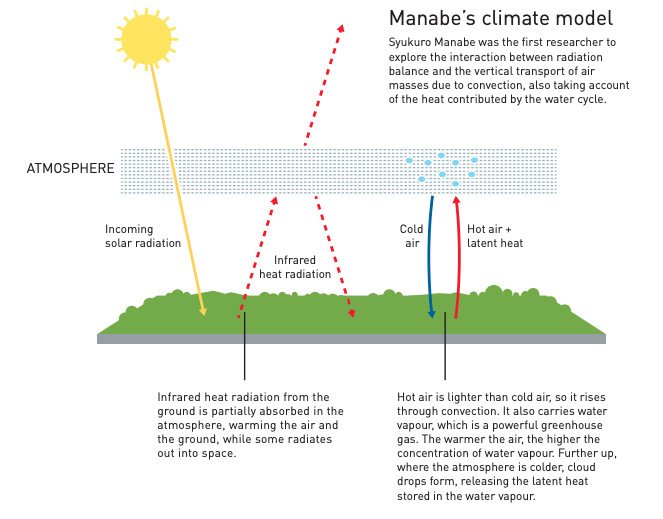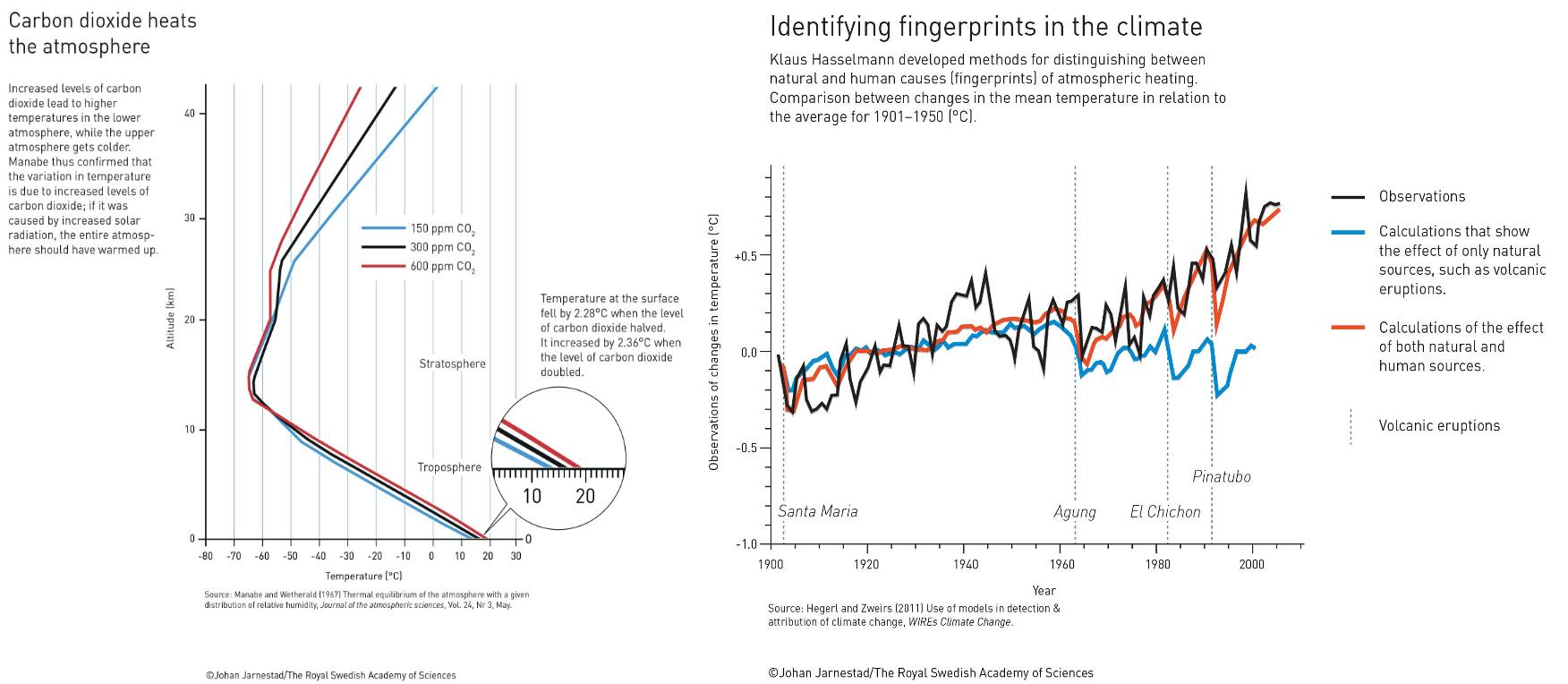
Climatologists Syukuro Manabe and Klaus Hasselmann laid the foundation of our knowledge of the Earth’s climate and how humanity influences it. Climate science and complex systems studies are at the center of the Nobel Prize in Physics 2021, shared with Italian scientist Giorgio Parisi.
Source: Nobel Prize press release
The Nobel Prize in Physics 2021 was awarded “for groundbreaking contributions to our understanding of complex systems” with one half jointly to Syukuro Manabe and Klaus Hasselmann “for the physical modelling of Earth’s climate, quantifying variability and reliably predicting global warming” and the other half to Giorgio Parisi “for the discovery of the interplay of disorder and fluctuations in physical systems from atomic to planetary scales.”
Physics for climate and other complex phenomena
Three Laureates share this year’s Nobel Prize in Physics for their studies of chaotic and apparently random phenomena. Syukuro Manabe and Klaus Hasselmann laid the foundation of our knowledge of the Earth’s climate and how humanity influences it. Giorgio Parisi is rewarded for his revolutionary contributions to the theory of disordered materials and random processes.
Complex systems are characterised by randomness and disorder and are difficult to understand. This year’s Prize recognises new methods for describing them and predicting their long-term behaviour.
Watch the moment the 2021 Nobel Prize in Physics is announced:
One complex system of vital importance to humankind is Earth’s climate. Syukuro Manabe demonstrated how increased levels of carbon dioxide in the atmosphere lead to increased temperatures at the surface of the Earth. In the 1960s, he led the development of physical models of the Earth’s climate and was the first person to explore the interaction between radiation balance and the vertical transport of air masses. His work laid the foundation for the development of current climate models.
About ten years later, Klaus Hasselmann created a model that links together weather and climate, thus answering the question of why climate models can be reliable despite weather being changeable and chaotic. He also developed methods for identifying specific signals, fingerprints, that both natural phenomena and human activities imprint in the climate. His methods have been used to prove that the increased temperature in the atmosphere is due to human emissions of carbon dioxide.
Around 1980, Giorgio Parisi discovered hidden patterns in disordered complex materials. His discoveries are among the most important contributions to the theory of complex systems. They make it possible to understand and describe many different and apparently entirely random materials and phenomena, not only in physics but also in other, very different areas, such as mathematics, biology, neuroscience and machine learning.
“The discoveries being recognised this year demonstrate that our knowledge about the climate rests on a solid scientific foundation, based on a rigorous analysis of observations. This year’s Laureates have all contributed to us gaining deeper insight into the properties and evolution of complex physical systems,” says Thors Hans Hansson, chair of the Nobel Committee for Physics.
“Weather forecasting was more of an art, rather than science”
Establishing a firm scientific basis for predicting what will happen to the climate, and in the shorter term to weather, has been the challenge that has occupied Syukuro Manabe’s entire working life. In this interview realized by Adam Smith, Chief Scientific Officer of Nobel Prize Outreach amidst the happy chaos resulting from the early morning announcement of his Nobel Prize in Physics, Manabe reflects on the importance of fundamental research. As he says, “The prediction of climate change without accompanying understanding of it is no better than the prediction of a fortune teller.”
The telephone interview to Syukuro Manabe – Watch the video
Image credits: Johan Jarnestad / The Royal Academy of Sciences
“We’ve been warning against climate change for about 50 years or so”
Interviewed just minutes after the news of his Nobel Prize in Physics had been announced, Klaus Hasselmann states that “most urgently needed is some action against climate change. I mean there are many things we can do to prevent climate change, and it’s a whole question of whether people will realise that something which will happen in 20 or 30 years is something which you have to respond to now, and that’s the main problem with the climate change. Ever since, I mean we’ve been warning about climate change for 50 years or so, and it’s just that people are not willing to accept the fact that they have to react now to something that will happen in a few years, and this is something we’ve been sort of battling against now for many years as climate scientists.”
The telephone interview to Klaus Hasselmann – Watch the video
Syukuro Manabe, born 1931 in Shingu, Japan. Ph.D. 1957 from University of Tokyo, Japan. Senior Meteorologist at Princeton University, USA.
Klaus Hasselmann, born 1931 in Hamburg, Germany. Ph.D. 1957 from University of Göttingen, Germany. Professor, Max Planck Institute for Meteorology, Hamburg, Germany.
Giorgio Parisi, born 1948 in Rome. Italy. Ph.D. 1970 from Sapienza University of Rome, Italy. Professor at Sapienza University of Rome, Italy.




